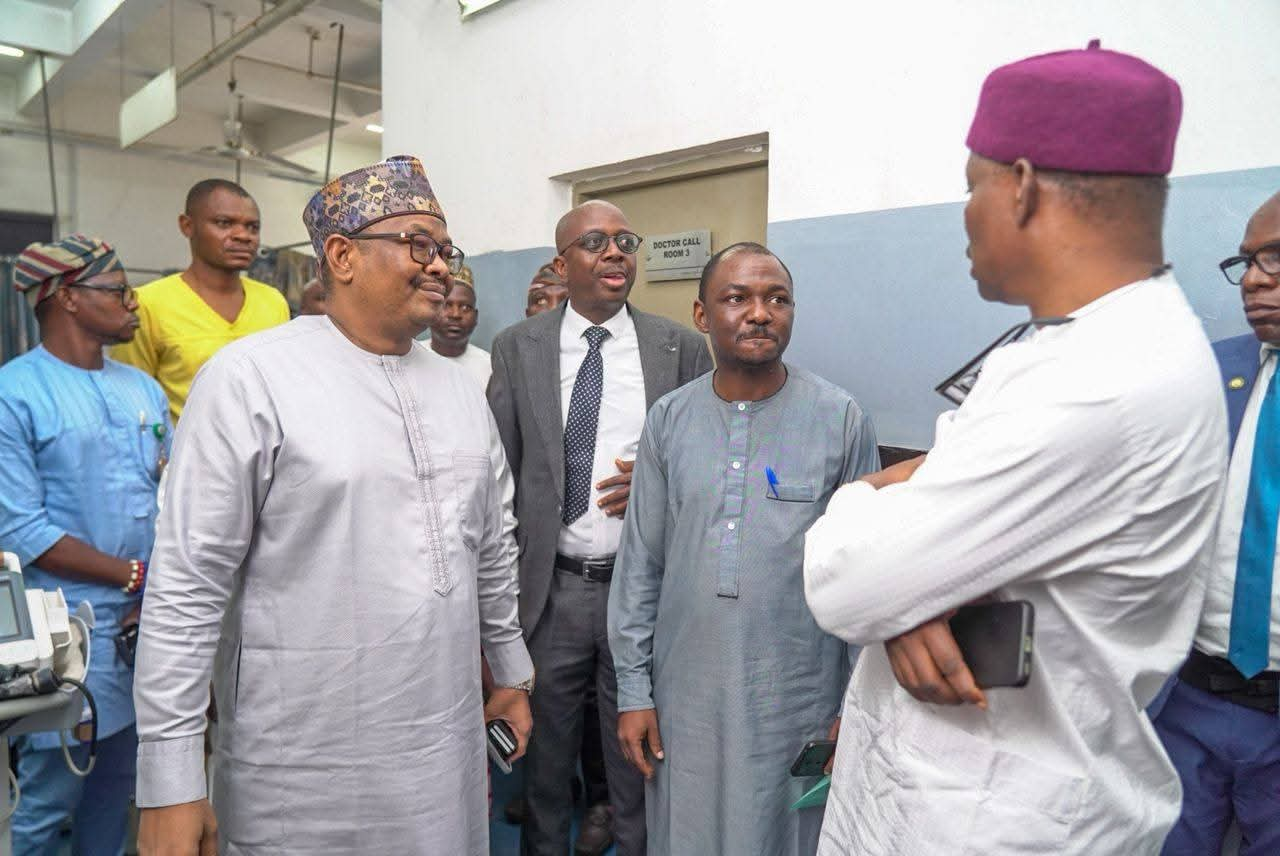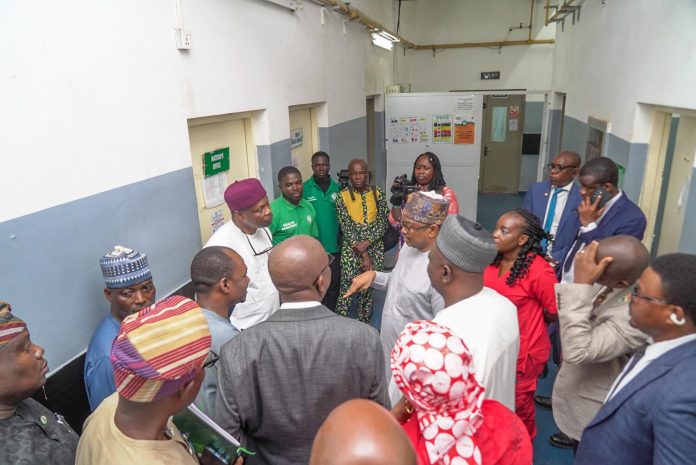- Orders Emergency Care Reforms
By Emmanuella Oghenetega
Following the release of the report of the investigative panel ordered by the Minister of State of the Health Ministry, in response to a viral video that sparked public outrage over poor emergency service delivery at the Federal Medical Centre, Abuja, Dr. Iziaq Adekunle Salako paid an unannounced assessment visit to the emergency unit of the hospital.
The video, widely circulated online, showed an accident victim brought to the hospital by a good Samaritan only to face delays and apathy at the emergency unit.

Dr. Salako, during the visit, engaged directly with frontline medical personnel and the Chief Medical Director at the Emergency ward, asking critical questions about the hospital’s preparedness, infrastructure, and workforce capacity in handling emergencies.
“You are in the eye of the storm, being responsible for saving lives.” It means that, even if you have done one million things successfully, when you do one wrong, nobody will remember the one million that you have done successfully. So, you have to do it successfully all the time”; Dr. Salako admonished consistency of prompt service delivery, especially in emergency care.
During an interactive session with the Head, Medical Emergency, Dr. Timothy Sama’ila, a consultant neurosurgeon, the Honourable Minister, inquired on corrective measures that had been taken by the hospital management since the incident.
Responding, Dr. Samaila
acknowledged challenges, including limited space in the emergency unit, fluctuating staff numbers on duty, and Abuja’s high patient load.
The Minister reiterated the need for dilligent implementation of the recommendations of the investigative panel including immediate review of staff strength, calling for an increase in the number of casualty officers per shift from the current two to at least four. He also urged management to ensure that recently recruited health assistants are integrated effectively to support clinical teams.
On infrastructure, Dr. Salako noted improvements in electricity and water supply but flagged specific areas within the emergency wing for urgent upgrades and better organization.
He emphasized that facility improvement must be ongoing and responsive to patient needs.
Security and crowd control also came under scrutiny. The hospital management reported collaborations with both private guards and the Nigeria Security and Civil Defence Corps (NSCDC) to secure the emergency area and ensure smooth ambulance access.
The Minister stressed the need for surveillance systems, citing past incidents where CCTV played a critical role in investigations.
Dr. Salako also disclosed federal plans to introduce cross-country emergency care training, a pioneering program aimed at unifying and elevating emergency response standards across all public health facilities in Nigeria.
“Everyone is watching you now,” he asserted. “Use this opportunity to show the public what capable and compassionate healthcare delivery looks like.”


